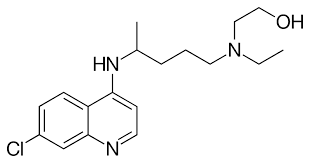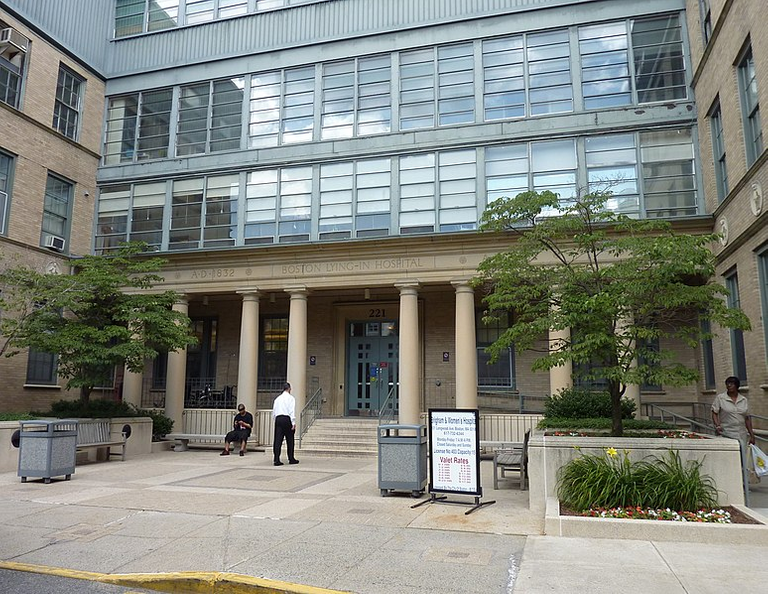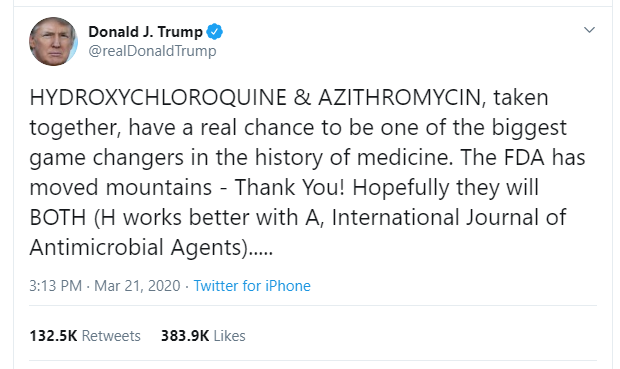
Hydroxychloroquine structure - Public Domain
Chloroquine and hydroxychloroquine (known by the trade name of Plaquenil) are antimalarial drugs used to fight autoimmune diseases, such as rheumatoid arthritis or systemic lupus erythematosus.
The two molecules are similar and have the particularity of concentrating in large quantities in the body's cells, generating an antivirus action. Precisely for this reason they have been proposed as a possible therapy against the SARS-CoV-2 virus and they have also been studied to combat HIV, as well as being the subject of experimentation against SARS.
From yesterday, May 26, Aifa (Italian Medicines Agency) has suspended the authorization to use hydroxychloroquine for the treatment of SARS-CoV-2 infection, outside of clinical trials, both in the hospital and at home.
This happened following the publication of a global study that demonstrated increased mortality in Covid-19 patients treated with this pharmacological therapy.
The study was conducted by Dr. Mandeep R. Mehra and the research team of Brigham and Women's Hospital, a clinical center headed by Harvard Medical School.

Brigham and Women's Hospital - Image CC0
The results of the observational analysis are published on The Lancet and are very clear:
not only are chloroquine and hydroxychloroquine not beneficial, but they can cause noticeable damage.
In fact, patients treated with hydroxychloroquine or chloroquine regimens were much more likely to develop ventricular arrhythmias than those who had not received such drugs.
The study even showed a fourfold increase in the rate of significant ventricular arrhythmias in these patients.
Dr. Mehra and his colleagues conducted their study using the Surgical Outcomes Collaborative database, an international registry made up of de-identified data from 671 hospitals on six continents.
The analysis included clinical information on over 96,000 hospitalized patients diagnosed with Covid-19.
These included data from nearly 15,000 patients who received the antimalarial drug chloroquine or its analog hydroxyquinone with or without an antibiotic (azithromycin or clarithromycin) immediately after Covid-19 was diagnosed.
The primary end point of the study was death or discharge from the hospital.
The median age of the patients was 54 years, and 53% were men.
Those who underwent mechanical ventilation or who received remdesivir were excluded.
The results were the following:
- 10,698 patients who took one of these drug regimens died in hospital (11.1%) and 85,334 survived.
The team compared this mortality rate to that of a control group after taking into account confounding variables such as age, gender and underlying risk factors. The control group mortality rate was 9.3%.
Each of the chloroquine or hydroxychloroquine drug regimens alone or in combination with a macrolide, as a treatment to combat Covid-19 infection, has been associated with an increased risk of death.
In addition, there was association with a significant increase in the risk of ventricular arrhythmia.
- Among the treatment groups, between 4% and 8% of patients had new ventricular arrhythmia, compared to 0.3% of the control group patients.
- For those who received hydroxychloroquine, there was a 34% increase in the risk of mortality and a 137% increase in the risk of severe cardiac arrhythmia.
For those treated with antibiotic-associated hydroxychloroquine, the increase in risk of death was 45% and 411% in the risk of severe cardiac arrhythmias.
Those receiving chloroquine had a 37% increased risk of death and a 256% increased risk of serious cardiac arrhythmias.
- For those taking antibiotic-associated chloroquine, there was a 37% increase in the risk of death and a 301% increase in the risk of severe cardiac arrhythmias.
Unequivocal data.
In fact, chloroquine and hydroxychloroquine are known to cause cardiovascular toxicity and previous studies have shown that macrolides can increase the risk of sudden cardiac death.
There have been at least 13 studies in the past few months on hydroxychloroquine or chloroquine as a treatment for patients with Covid-19.
They included randomized controlled trials, as well as observational analyzes that include all patients, from those affected by mild disease to those near death.
Evidence of any benefit, such as viral clearance or improvement of symptoms, has been almost nonexistent.
In confirmation of this latest big research, many had already found an increased risk of adverse cardiac reactions, especially if the combination with antibiotic azithromycin was present.
This scientific evidence sparked further fierce criticism against US President Donald Trump, who, during a meeting in the White House, allegedly took prophylactic antimalarial drug against Coronavirus.

As early as April, some experts had highlighted the negative consequences related to the use of the drug in patients with Covid, to the point that the FDA had warned against the use of the drug outside of hospital facilities or clinical trials.

Thanks to all of you for reading my article.
If you liked it, share it on your blog and write me a comment with your impressions.
See you soon!
GM
Sources
Mehra M et al. "Hydroxychloroquine or Chloroquine with or without a Macrolide and Outcome in COVID-19: A Multinational Registry Analysis" The Lancet DOI: https://doi.org/10.1016/S0140-6736(20)31180-6
https://www.fanpage.it/live/coronavirus-ultime-notizie-26-maggio/65/

Credits: @doze
Sorry for the delay in commenting here. Am really busy those days. I have indeed read the news and France decided the same thing as Italy. I have read today an interested comment on the study, claiming that one missing information concerns the dose of medication taken, and that it would be better to provide the information country-related and not continent related as we could have large variation in the healthcare system (among a problem with the sample of people as such, the information being private). The conclusions of the comment was that it would be better not to stop the studies on a country by country basis. I must say I am a bit puzzled but tend to agree with the comment.
In my opinion, there are too many risks and too many uncertainties...when, at the beginning, the patients treated were still too few to give a judgment, it could have made sense to continue. But now that the evidence is clear, I think it's better to leave it and continue on other solutions, which instead have proved more valid.
In the meantime, it seems less and less clear (cf. the message from the editor of yesterday). The issues that are raised are exactly those.
When science and politics mix with each other, some actions may be done too hastily... We need the studies to understand more.
Perhaps, a research should be made on how chloroquine acts on sars-cov2 to validate its' use..
As for the ventricular arryhtmias, long QT is a known side effect of the drug so a daily routine ECG is being done to evaluate it to be stopped.
I guess the issue here is... can it be a treatment, considering its' serious side-effects? Some patients are sensitive to it so it can be discontinued. Some patients have had no side-effects to it too.
Of course, not all of them have had side effects, but the numbers that emerge from the research show that the risk-benefit ratio seems to be really unfavorable.
I haven't read much about it, esp during SARS. Am intrigued though on its' mechanism of action. Will have to further my research on it.
Cheers!
When I miss your posts, it's my loss.
I don't understand why it is surprising that the combination would lead to cardiac problems. It's really a sad state of affairs when science becomes the victim of politics. But then, we could have a conversation with countless scientists through the ages (including Galileo) and hear the same refrain.
I couldn't sign in on Hivesigner to comment and vote on STEMsocial.
I believe that, especially initially, while scientists were looking for therapies that could safeguard the lungs, someone underestimated the possible cardio-vascular involvement.
It was a serious mistake and in fact around this solution there has always been a veil of justified skepticism.
Certainly politics and economic interests, as you said, also played a fundamental role in this case.
I'm glad you considered the post interesting, I'm always flattered by your compliments...thank you very much! 🤗
This goes to show how detrimental can be an excess of haste and lack of proper scientific testing. We can only hope that they take their time developing the vaccine so something like this doesn't happen again.
I totally agree with you, unfortunately it was an exceptional situation and many therapies have been tried...impossible to think that they could all be effective.
Thanks for your contribution to the STEMsocial community. Feel free to join us on discord to get to know the rest of us!
Please consider supporting our funding proposal, approving our witness (@stem.witness) or delegating to the @stemsocial account (for some ROI).
Thanks for including @stemsocial as a beneficiary, which gives you stronger support. Using the STEMsocial app could yield even more supporti next time.